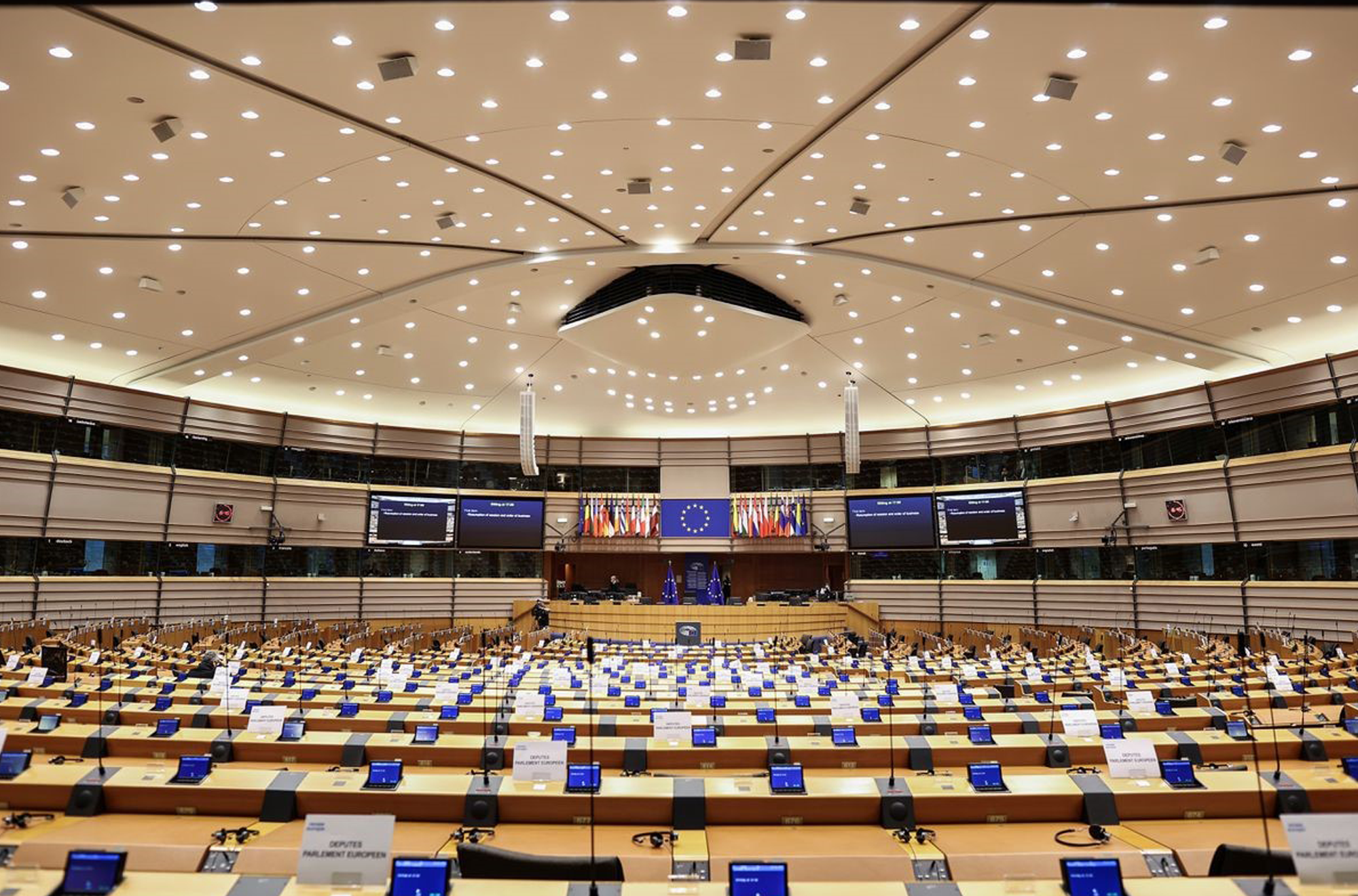
A number of Members of the European Parliament have been pushing to include the right to safe, legal abortion in the European Union Charter of Fundamental Rights. But that push did not start only on the day after French President Emmanuel Macron pledged to open this debate in the EU Council. In fact, the European Parliament had already addressed this question on 24 June 2021, calling on the European Union (meaning all its member states), to ensure the right to legal and safe abortion in a push to improve women’s sexual and reproductive health in response to Covid-19. A non-binding resolution was passed by 378 to 255 votes at that time. Now it’s back on the table. But would the vote be by each country, or by their MEPs?
“Women should not be forced to have children,” the Spanish leader of the Socialist Group, Iratxe García Pérez, said on 20 January 2022, during a plenary debate. “An abortion prohibition does not mean that more children are born, it means more women die,” she added.
The World Health Organization considers unsafe abortions a “preventable pandemic” causing the deaths of thousands of women every year. They also consider safe abortion to be essential heath care.
In the EU, Malta is the only country where abortion is still completely prohibited. But Poland has a near-total ban in place, and many EU states have a range of legal barriers to abortion, such as mandatory counselling, waiting periods between a request and the abortion, third party consent, low upper time limits and limited legal grounds that force many women to travel to other countries, and all the increased restrictions on travel due to Covid-19, especially where access to abortion pills and self-managed abortion have not been made available.
In fact, it was agreed early on that the European Union would not have a say on sexual and reproductive rights, especially not in relation to abortion. Instead it was agreed that these policies were the competence of member states because views differed so deeply. And even now, a proposed addition to the EU Charter of Fundamental Rights on this subject would require an agreement among all the member states. Would it be possible?
“If we live on a continent of rights and freedoms, then we live on a continent in which rights and freedoms can change and develop further,” the French minister for European affairs Clément Beaune told MEPs. “I know that’s not going to be easy, but it is a worthy discussion.”
Some conservative EU lawmakers called on the French Presidency to withdraw the proposal, arguing that countries like Poland and Hungary would never accept it.
Dutch Liberal MEP Samira Rafaella, meanwhile, called for a European solution to the backsliding on women’s rights in some member states. “If member states refused to sort out safe abortion… let’s make it possible for women to go somewhere else in Europe to have a safe abortion. We have to help one another,” she said.
All this became a topic again after the anti-abortion Maltese MEP Roberta Metsola was elected as the president of the European Parliament. She is said to have pledged to represent the “majority voice” on reproductive rights issues, but some MEPs are concerned about her track record in voting on sexual, reproductive and abortion rights.
“Denial of sexual and reproductive health and rights, including abortion care, is the ultimate oppression of women…We will continue this fight and we will insist that our new president, Roberta Metsola, stands with us in this fight,” said Swedish left-wing MEP Malin Björk.
“We will be watching you, President Metsola,” said French liberal MEP Chrysoula Zacharopoulou.
Austrian centre-left MEP Regner Evelyn, who chairs the women’s rights committee, regretted that such a debate was still needed decades after Simone Veil, who strongly defended women’s rights and abortion rights, was among those who led the change to France’s abortion law in the 1970s and was the first woman to be elected as president of the EU Parliament.
“Supporting women’s bodily integrity and choice, and sexual and reproductive health decisions, is central to equality,” said Irish centre-right MEP Frances Fitzgerald. “This is a ‘societal responsibility’ of both women and men.”
Macron pledged to make progress on other aspects of gender inequality, such as the pay transparency proposal and the women on boards directive, which have been stuck in the EU Council for years.
SOURCES: EU Observer, by Elena Sánchez Nicolás, 21 January 2022 ; Reuters, 25 June 2021 + PHOTO of European Parliament on 23-11-20 by Kenzo Tribouillard/Pool via Reuters



